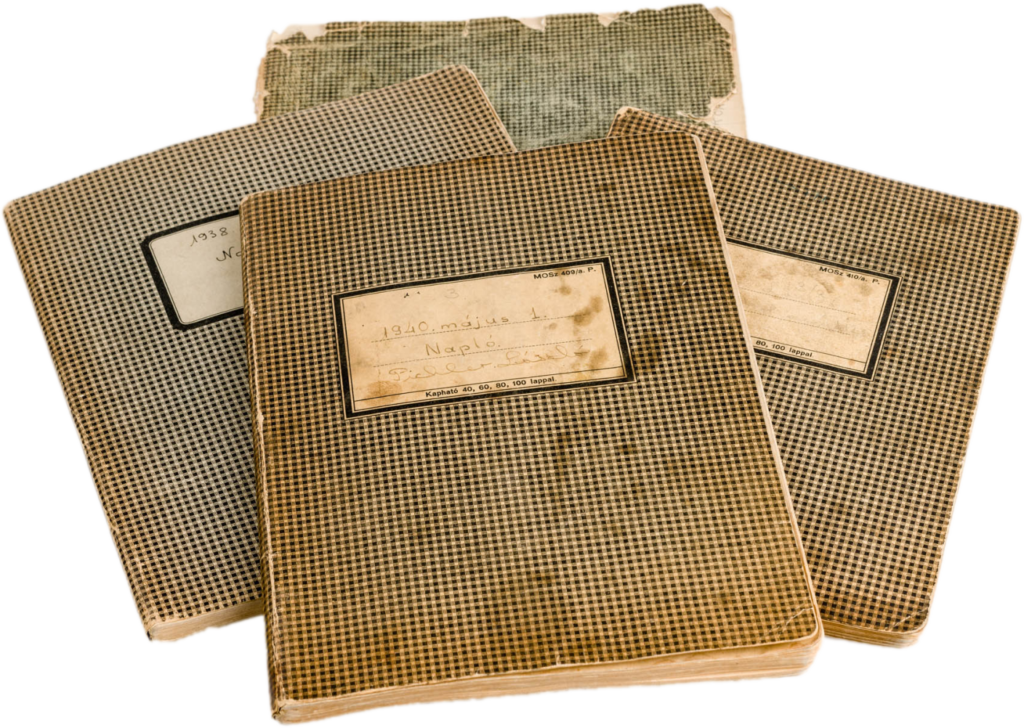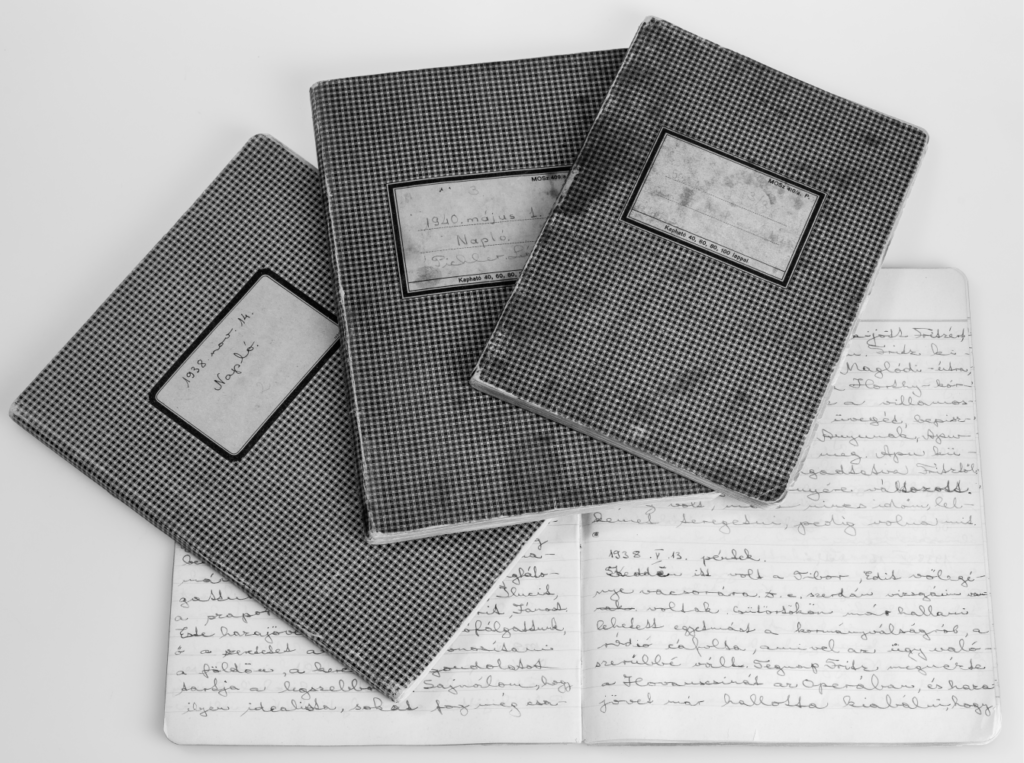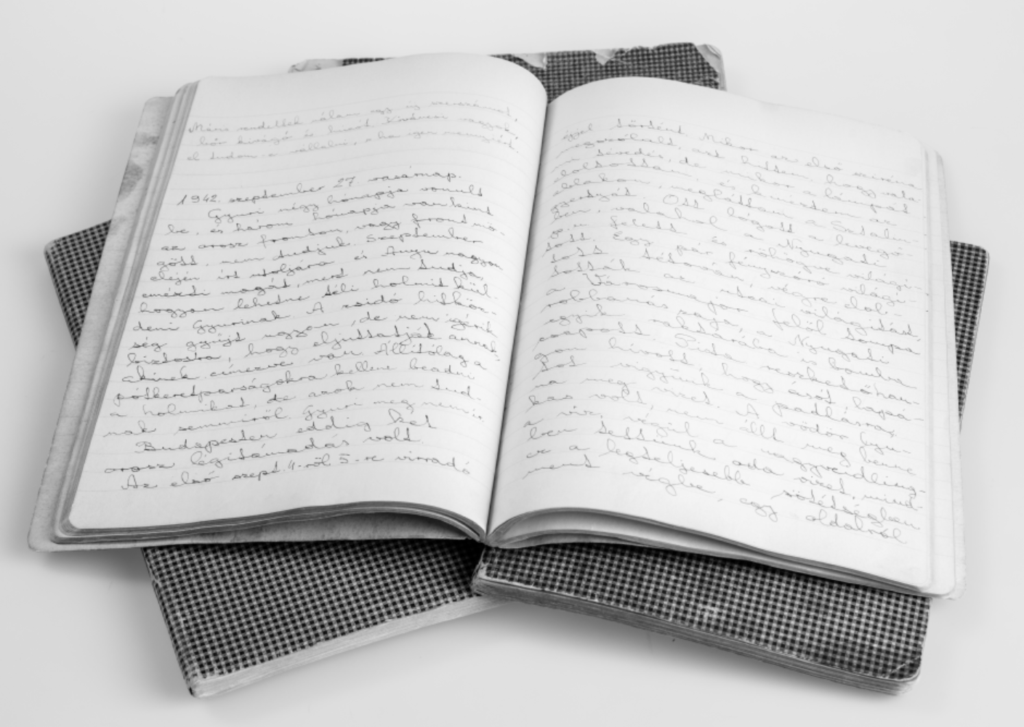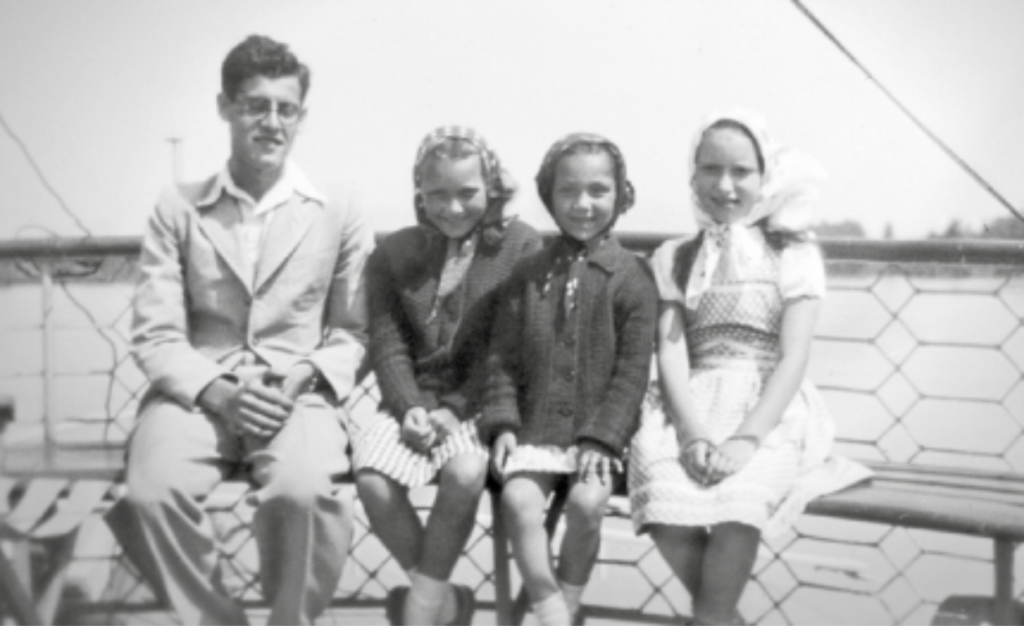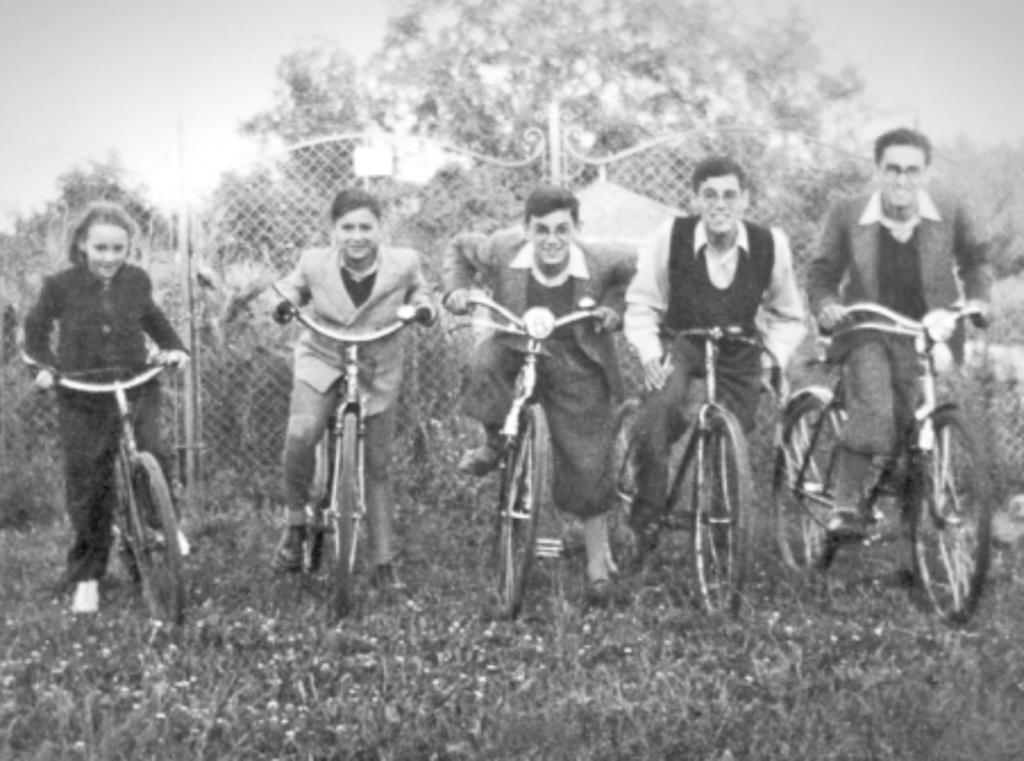THE CHEQUERED NOTEBOOKS: A YOUNG MAN’S DIARY 1938–1944 / Nóra Előd
“My backpack is packed, everything is prepared, the car can leave. Tomorrow, I will join my unit again. In Vác. Along with me, all the other Jews between the age of 18 and 40 have also been enlisted. I have no idea whether I will be demobilized. If not, Mom, Margó and the two kids will need to face the journey to the ghetto on their own. Oh, Lord, you have hardened me with the many unexpected and meaningless slaps of fate, yet I entrust to you whether we will survive or perish. […] I am awaiting the unknown with inhuman curiosity. My dear Mom, God bless you!”
Preparing my elder cousin, Laci Pichler’s diary for publication, I wanted to save those four thick, chequered notebooks covering the events of six years from annihilation. The notebooks were found in a cardboard box with the label “Family Keepsakes”, which I carried with me whenever I moved, but never opened until well after my retirement. I will never know whom to thank for having protected them all through the difficult years, when everything else we used to have, was gone.
I remember Laci as a bespectacled young man with wavy hear (he was 23 when he was enlisted). He and his brothers: the 25-year-old Gyuri, who also perished (Russian front, “extenuation”) and the 19-year-old Andris, who disappeared, too (where? how?) – the three of them always dearly loved us, the little Előd daughters.
The fact that the author started to write this diary because of and on the day of the Anschluss makes the chequered notebooks remarkable. The thick notebooks outline an image of Laci as a well-informed young man with a lively spirit, who paid attention to details, was interested in politics, and saw things clearly. The diary also tells about his private life, including all its major and minor incidents.
Laci is only 17 when he begins to write his diary, and the entries follow his maturation in a period of intense changes, full of emotions and events. In spite of his excellent school-leaving exam results, Laci could not apply to the university in the shadow of the numerus clausus laws. The diary reveals three definitive layers in his life. In the beginning, the emphasis is on his private life: the sincere process of facing and fighting himself. Later, love and work become the dominant themes, as he is trying to reach perfection even as a toolmaker, although it is not a voluntarily chosen job, making life difficult for him according to his diary. Finally, he focuses on the tragedy of a diminishing family, trampled by history. No matter how late it is or how tired the writer of the diary feels, he never misses to report the political situation which, by now, can be called historical: he always gives a precise account complete with his personal opinion and evaluation.
Besides, Laci’s diary is family history, too. On the day of its publication, we had a sudden surprise: a woman called Babi appeared at the book launch event. She is often mentioned in the notebooks as she used to be Laci’s sweetheart – and we could meet her in person after seven decades, due to the chequered notebooks.
